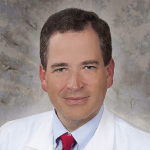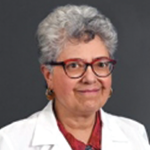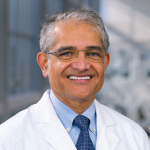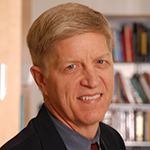New Appointments for Carlos Lozada, MD
 In the midst of the coronavirus pandemic, Carlos J. Lozada, MD, FACP, FACR, professor of clinical medicine, University of Miami Miller School of Medicine, has expanded his professional and volunteer duties. In May he was appointed chief (interim) of the Division of Rheumatology at the Miller School of Medicine, and he became president of the Panamerican League of Associations for Rheumatology (PANLAR) and chair of the International League of Associations for Rheumatology (ILAR) Executive Committee in August.
In the midst of the coronavirus pandemic, Carlos J. Lozada, MD, FACP, FACR, professor of clinical medicine, University of Miami Miller School of Medicine, has expanded his professional and volunteer duties. In May he was appointed chief (interim) of the Division of Rheumatology at the Miller School of Medicine, and he became president of the Panamerican League of Associations for Rheumatology (PANLAR) and chair of the International League of Associations for Rheumatology (ILAR) Executive Committee in August.
Dr. Lozada has been on the University of Miami faculty since 1994 and has served as director of the Rheumatology Fellowship Training Program since 1996. That program has been awarded the ACR Fellowship Training Award nine times. Dr. Lozada himself was awarded the 2020 ACR Distinguished Fellowship Program Director Award during ACR Convergence 2020.
Dr. Lozada has served on the boards of directors for the ACR, the Rheumatology Research Foundation and the U.S. Bone and Joint Decade (now known as the Global Alliance for Musculoskeletal Health), and has served on PANLAR’s board and executive committee for more than six years. With so many extra duties, Dr. Lozada maintains his history of volunteering is just “second nature.”
The University of Miami Miller School of Medicine is affiliated with the Miami-Dade county hospital, Jackson Memorial—an ideal setting, Dr. Lozada points out, for exposing fellowship trainees to a variety of rheumatic diseases. Many of these, especially lupus, disproportionately affect minority groups in the U.S.
What he’s tried to do, decade after decade, is to “keep the focus on service and on the mission of serving the patient,” he says. In this respect, Dr. Lozada’s guidance of the training program mirrors his own experiences as a fellow at NYU/Hospital for Joint Disease Orthopedic Institute, where he learned to care for populations of patients at Bellevue, also a county hospital.
“Just being exposed at those institutions to superb, dedicated physicians who see taking care of underserved populations as their mission has been instrumental in setting my course in rheumatology,” he notes. “In New York City, and in Miami as well, you have the opportunity to learn to provide culturally sensitive and aware care.”
The pandemic dictated a shift in meeting and educational structures, so trainee programs have necessarily moved into telemedicine territory. A part of the fellowship curriculum is now focused on training fellows to fully participate in telemedicine. “That’s the silver lining of this [pandemic],” he says: “Our trainees will now be much more comfortable with virtual medicine technology than we were.”
Mary Chester Wasko, MD, MSc, Appointed to ABIM Rheumatology Specialty Board
 Mary Chester Wasko, MD, MSc, division director of rheumatology at Allegheny Health Network’s (AHN’s) West Penn Hospital, Pittsburgh, joined the American Board of Internal Medicine’s (ABIM’s) Rheumatology Specialty Board in May. She spoke with TR about her decision to continue service with ABIM, after completing two three-year terms on the ABIM Rheumatology Board Exam Committee.
Mary Chester Wasko, MD, MSc, division director of rheumatology at Allegheny Health Network’s (AHN’s) West Penn Hospital, Pittsburgh, joined the American Board of Internal Medicine’s (ABIM’s) Rheumatology Specialty Board in May. She spoke with TR about her decision to continue service with ABIM, after completing two three-year terms on the ABIM Rheumatology Board Exam Committee.
When invitations to apply to the specialty board arrived, Dr. Wasko reasoned that her career to date had prepared her for the position. “I’ve been an educator myself ever since I finished fellowship [at the University of Michigan Hospitals and Health Center],” she says. “In addition, AHN is strongly patient-care oriented, and the division I oversee comprises primarily clinicians with busy outpatient practices. This recent 10 years of experience, superimposed on nearly 20 years at the University of Pittsburgh, has put me in a great position to understand both community-based clinician and academia-centric perspectives.”
During her time on the Exam Committee, Dr. Wasko became further attuned to the challenges faced by community-based colleagues, who must negotiate a recertification process fraught with high preparation demand, high pressure and high stakes. Dr. Wasko explains that, for academic clinicians, preparation for the recertification exam is interwoven with the learning environment. But a busy, community-based rheumatologist, who may be putting in a 50- to 60-hour workweek, doesn’t have ready access to the built-in educational resources, formal didactics or journal clubs that are part of the academic learning environment.
The ABIM has been listening to concerns about the time-intensive preparation required and the high stakes involved (i.e., pass/fail, with more time required for a retest), and is aggressively working to address the situation for community-based rheumatologists. The recertification process, which entailed an all-day, multiple-choice exam every 10 years, is being reformatted to offer more options for rheumatologists.
“The board has heard the concerns and has tried to be sensitive and respond in tangible ways,” Dr. Wasko notes. And because of her involvement with community rheumatology organizations, Dr. Wasko believes she has insight that will allow her to be an advocate for both academic and private practice rheumatologists.
Salahuddin Kazi, MD, Now Chair of ABIM Subspecialty Rheumatology Board
 Since his appointment in May as chair of the ABIM Rheumatology Board, Salahuddin (Dino) Kazi, MD, has been combining his new duties with his ongoing appointment as professor and program director of the internal medicine training program at UT Southwestern Medical Center, Houston.
Since his appointment in May as chair of the ABIM Rheumatology Board, Salahuddin (Dino) Kazi, MD, has been combining his new duties with his ongoing appointment as professor and program director of the internal medicine training program at UT Southwestern Medical Center, Houston.
The three-year appointment provides Dr. Kazi with the opportunity to build relationships, he says. “I find it [sort of] fascinating to move outside of my UT Southwestern bubble and have these deep interactions with people from all over the country and from different backgrounds—community, academic and public.”
Leaving the Door Open
Dr. Kazi’s dedication to medical education is rooted in his acknowledgment of the rapidly changing nature of scientific knowledge. “It’s been very humbling, as residency program director, to recognize from year to year how much work is entailed in redefining our mental models of how we understand things,” he says.
Directing the residency program has informed Dr. Kazi’s input with the ABIM Rheumatology Board. Even though physicians develop expertise in one area, they need to “leave the doors open,” he says, for learning outside their specialty area and staying aware of health system science and societal principles.
“We physicians are connected with the social determinants of health, so we need to have a very broad mental model of all the factors that impact medicine,” he says.
Dr. Kazi believes the interdependent learning model that works in residency training can work for future physicians in independent practice. The interdependent relationship between the ABIM, the ACR and sole practitioners, as well as patients, can create a more robust system.
He has served on the ABIM Rheumatology Board for four years and praises the board’s efforts to create the Community Insight Network, with more than 4,000 diplomates participating in user testing of recertification programs. He has seen first-hand that ABIM does not develop test content in a vacuum. He intends to be a part of creating a process at ABIM that opens a pathway to lifelong learning and future proofing.
“While the river is the same, the water that’s flowing through it is perpetually renewed,” Dr. Kazi notes.
Gretchen Henkel is a health and medical journalist based in California.

